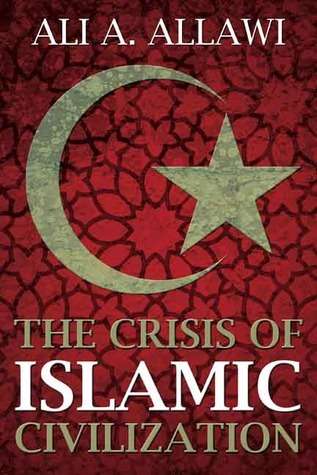
The Crisis of Islamic Civilization (Yale University Press,)
Check my rate
| Main centres: | 1-3 business days |
| Regional areas: | 3-4 business days |
| Remote areas: | 3-5 business days |

| Main centres: | 1-3 business days |
| Regional areas: | 3-4 business days |
| Remote areas: | 3-5 business days |
Islam as a religion is central to the lives of over a billion people, but its outer expression as a distinctive civilization has been undergoing a monumental crisis. Buffeted by powerful adverse currents, Islamic civilization today is a shadow of its former self. The most disturbing and possibly fatal of these currents "the imperial expansion of the West into Muslim lands and the blast of modernity that accompanied it" are now compounded by a third giant wave, globalization. These forces have increasingly tested Islam and Islamic civilization for validity, adaptability, and the ability to hold on to the loyalty of Muslims, says Ali A. Allawi in his provocative new book. While the faith has proved resilient in the face of these challenges, other aspects of Islamic civilization have atrophied or died, Allawi contends, and Islamic civilization is now undergoing its last crisis.
The book explores how Islamic civilization began to unravel under colonial rule, as its institutions, laws, and economies were often replaced by inadequate modern equivalents. Allawi also examines the backlash expressed through the increasing religiosity of Muslim societies and the spectacular rise of political Islam and its terrorist offshoots. Assessing the status of each of the building blocks of Islamic civilization, the author concludes that Islamic civilization cannot survive without the vital spirituality that underpinned it in the past. He identifies a key set of principles for moving forward, principles that will surprise some and anger others, yet clearly must be considered.
This book makes a comprehensive argument that the Islamicate world today is a mortally wounded civilization that has been devastated by its confrontations over the past two centuries with secular modernity, Western colonial power and its own venal and shortsighted native elites. Allawi himself is a prominent Iraqi political figure, but the scope of the book encompasses the entire Muslim world rather than focusing on the perspective of the Arabs or any other ethnic group. His perspective is a refreshingly intelligent and heartfelt take on pan-Islamism and almost feels like a dispatch from a more enlightened era. He argues that although many, likely most, Muslims still feel a strong attachment to their religion, the broader scaffolding of Islamic civilization has for the most part disappeared. Islamic economics, science, medicine, architecture, manufacturing, political theory and a variety of other disciplines which were absolutely core to the world of Islam have either been completely lost or only continue to exist as hollowed-out parodies of their former selves.
Allawi is generally not optimistic about the revival of Islamic civilization, though he concedes that in some form the religion will widely continue to exist into the foreseeable future. Having said that, his argument for a possible renewal of the Islamicate world is refreshing. He doesn't argue for remedying the consequences of modernity strictly within the context of that same modernity, as many others, including political Islamists, generally tend to do. While the last two centuries of change have devastated the outer manifestations of Islamic civilization, Allawi argues that the one formidable bulwark against its extinction remains the spiritualized Muslim individual. Generally speaking Muslims have been very resistant to the claim that material advancement must also mean spiritual impoverishment. Their possible rediscovery of the spiritual bases of their faith also offers the hope that they can renew its outer forms, drawing on resources from within. The main obstacle to this is the fact that the traditional social vehicles of Islamic spirituality have largely been destroyed in the 21st century, first by authoritarian secular modernizers and more recently by the Salafi/Wahhabi movement. As a result many Muslims today know almost nothing about the way that their faith was practiced for most of its history, or even more importantly why it was ultimately practiced as such. In contrast to the strictly rational school of modern Western thought, in Islam the experiences of intuition, inspiration and reflection are considered legitimate sources of knowledge. These experiences can attain through religious expression in the Sufi orders and Imami Shiism and have historically been a powerful force - including among the first generation of Muslims who attempted to resist physical colonization by the West (such as Abdelkader Djazairi, Imam Shamil, Omar Mukhtar etc.). Allawi argues that only by returning to the spiritual roots of the tradition can the wellsprings of its renewal be found. I actually this to be a compelling argument for the renewal and rehumanization of the Muslim world, which in many ways today simply feels like an inferior version of secular modernity, albeit wearing Oriental garb. Reading the book, I was very impressed with Allawi as a thinker.